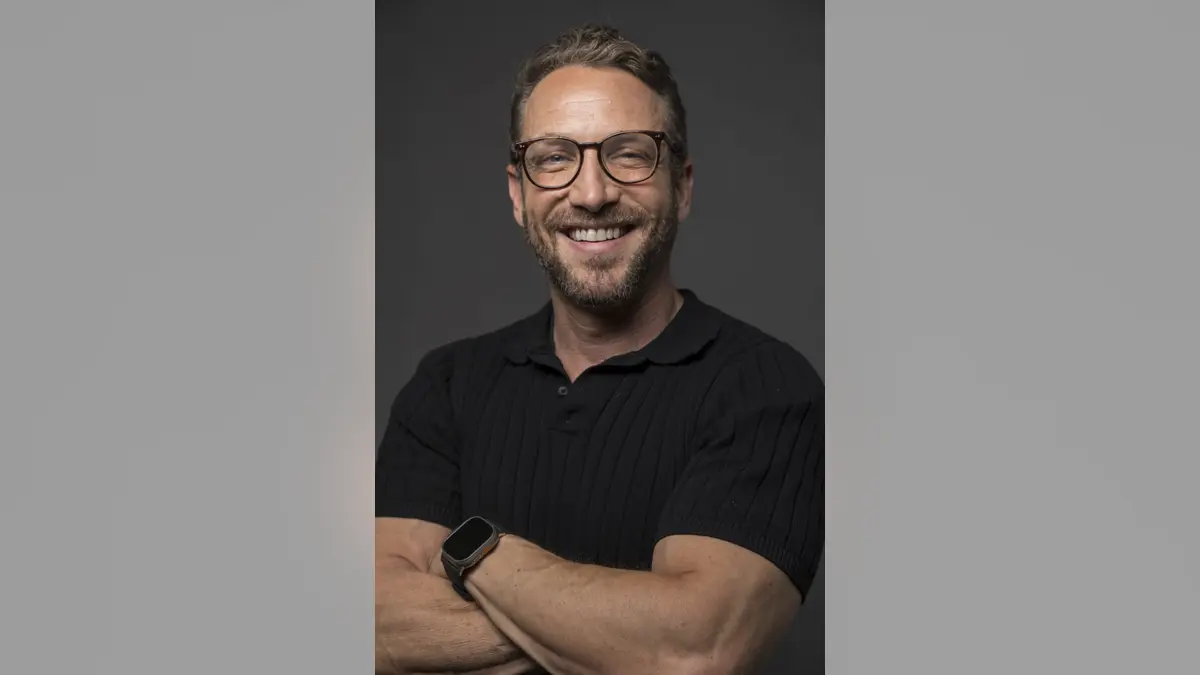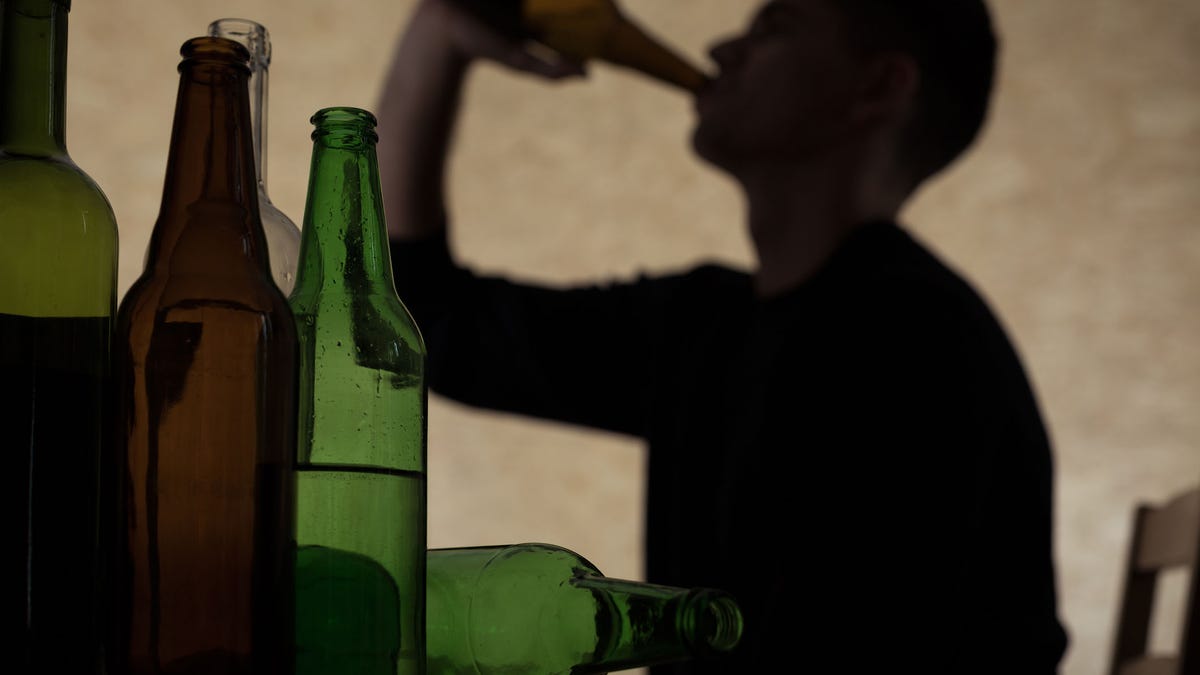Join Fox News for access to this content
Plus special access to select articles and other premium content with your account - free of charge.
By entering your email and pushing continue, you are agreeing to Fox News' Terms of Use and Privacy Policy, which includes our Notice of Financial Incentive.
Please enter a valid email address.
More than a third of Americans report making New Year’s resolutions, statistics show, many of which are focused on kicking bad habits.
Whether it’s smoking, overeating, drinking excessive alcohol or "doom-scrolling" on social media instead of sleeping, 72% of U.S. adults report having at least one unhealthy behavior, according to data from the United Health Foundation.
Dr. Adi Jaffe, a California-based psychologist, knows firsthand the dangers of unhealthy habits, as he once struggled with drug addiction himself.
CDC WARNS OF DEADLY DRUG 100 TIMES MORE POTENT THAN FENTANYL, OVERDOSES SPIKE IN PAST YEAR
"I got trapped in the world of drugs and alcohol, from the middle of high school until a few years after college," he shared with Fox News Digital during an on-camera interview.

Dr. Adi Jaffe, a California-based psychologist, struggled with drug addiction in his youth and now helps others overcome unhealthy habits. (Adi Jaffe, PhD)
"Addiction doesn't separate by gender or age or race or income — people from all walks of life are impacted."
Jaffe ultimately spent time in jail before getting clean and returning to school, earning two master’s degrees and a PhD in psychology.
"I wanted to understand what happened to me — and then what I've done over the last 15 years, hopefully, is bring those lessons to others who are struggling."
"Addiction doesn't separate by gender or age or race or income — people of all walks of life are impacted."
Today, Jaffe focuses on helping people beat addiction and improve their mental health. In his upcoming book — "Unhooked: Free Yourself from Addiction Forever" — he shares a step-by-step program to help people free themselves from harmful habits.
Jaffe shared with Fox News Digital some of his tips and insights.
Recognizing the behavior
While many people think of addiction as involving drugs or alcohol, Jaffe noted that it can take many forms.

Many people assume that the behavior itself is the problem, the psychologist said — but there is almost always an underlying reason for those unhealthy or harmful choices. (iStock)
"If you engage in a behavior of any sort over long periods of time that robs you of your ability to be fully present in your life — and it bothers you, but you can't find yourself stopping it, even though you've tried over and over — to me, that qualifies," he said.
In addiction to substance abuse, addictive behaviors might include "doom-scrolling" on your phone for hours a day, binge-eating, gambling or indulging in other unhealthy activities.
SEVERE HEALTH RISKS OF VAPING AND E-CIGARETTES, ESPECIALLY FOR YOUTH, SAY EXPERTS
People can be addicted to work and success, too, Jaffe noted.
"When things get hard and get tough, they want to go to work," he said. "They believe success or performance will make them feel better, but it can cause damage just like other addictions."

"Doom-scrolling" on social media is a potentially addictive behavior, the psychologist noted. (iStock)
Social media is another form of addiction, the expert said.
"When your phone buzzes or pings, you don't know what's there, so it’s a novelty that's interesting, and it releases dopamine," he said. "You almost literally cannot help yourself."
Identifying the ‘hooks’
Many people assume that the behavior itself is the problem, Jaffe said — but there is almost always an underlying reason for those unhealthy or harmful choices.
"The behavior was actually a medicine of sorts for a problematic undercurrent."
"The reason you do it is that at some point earlier in your life, there was pain or struggle or emotional discomfort," he said.
"And you discovered that when you engaged in the behavior, that discomfort went away. So the behavior was actually a medicine of sorts for a problematic undercurrent."

More than a third of Americans report making New Year’s resolutions, statistics show, many of which are focused on kicking bad habits. (iStock)
For Jaffe, when he was 14 or 15 years old, his "hook" was social anxiety.
"And when somebody handed me a bottle of vodka at some sleepaway camp, I drank it because I didn't want to look awkward," he told Fox News Digital.
CLICK HERE TO GET THE FOX NEWS APP
"Once I started drinking, I had no anxiety and felt like I belonged. I felt like I could talk to people. And so I realized that alcohol had ‘solved’ this problem."

"Once I started drinking, I had no anxiety and felt like I belonged. I felt like I could talk to people. And so I realized that alcohol had ‘solved’ this problem." (iStock)
Everyone has different hooks, Jaffe said, but there are similarities and patterns.
"We start living our lives trying to escape the discomfort of the hooks."
Replacing the habit
Once people have identified an unhealthy behavior, one of the biggest mistakes they make is just trying to stop it without a plan, according to Jaffe.
CLICK HERE TO SIGN UP FOR OUR HEALTH NEWSLETTER
"We try to stop ourselves from doing what we don't like," he noted. "Especially around New Year’s, people might say, ‘I'm going to stop eating bad foods or I'm going to stop being lazy,’" he said.
Research has shown, however, that the most important aspect of kicking a bad habit is to replace the negative behavior with a positive one, the psychologist noted.

The most important aspect of kicking a bad habit is to replace the negative behavior with a positive one. (iStock)
"We have to stop trying to just eliminate bad habits — it doesn't work," Jaffe said. "We have to replace them with something else."
For example, if someone wants to quit smoking, they might keep gum or sunflower seeds in their pocket, he said.
"You just have to keep going."
Or, if someone is too focused on work, that might mean letting go of some tasks and delegating them to other people.
Jaffe also emphasized that the process of kicking a bad habit isn’t always perfect or seamless, and that slipping up from time to time doesn’t equate to failure.
For more Health articles, visit www.foxnews.com/health
"It's okay to fall flat on your face a number of times while you're working on changing this," he said.
"You just have to keep going."
Jaffe's book, "Unhooked: Free Yourself from Addiction Forever," will be available on Jan. 7.
.png)
 2 days ago
8
2 days ago
8


































 Bengali (BD) ·
Bengali (BD) ·  English (US) ·
English (US) ·